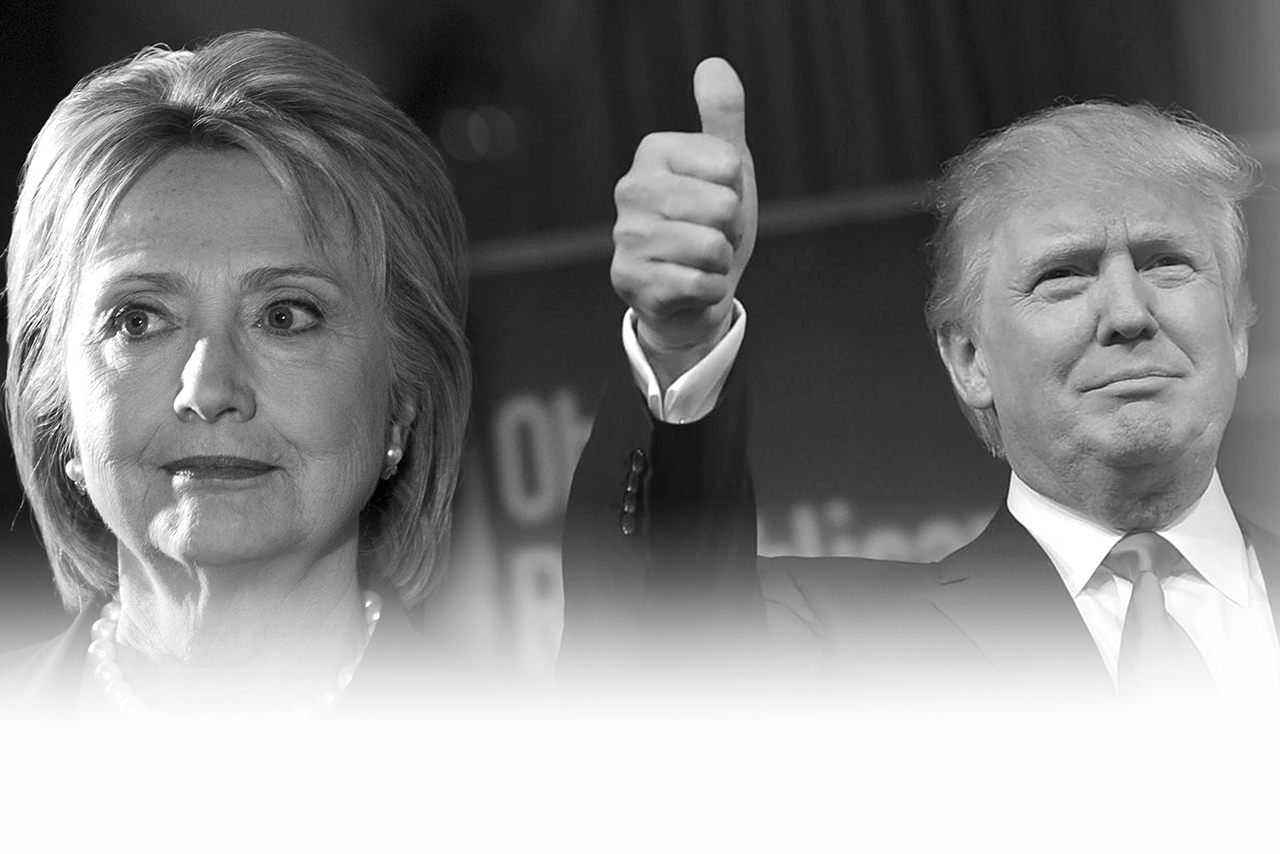Donald Trump screamed for a wall along the border, and crowds cheered. Bernie Sanders derided all of Wall Street as filled with greed and fraud, and crowds cheered.
Messages of fear or anger seemed to punctuate the fraught 2016 presidential election cycle, but it is nothing new. As long as democracy has existed, politicians have used fear as a weapon to win elections.
Appears InThe ancient Greek historian Polybius actually thought politics based on fear would destroy democracy. Yet more than 2,000 years later, candidates from all political persuasions still keep messages of fear tucked into their campaign arsenals. And that’s because fear appeals tend to work.
“Part of the way we process information in general—and politics in particular—is through emotions,” said Carl Palmer, assistant professor of political science. “There are incentives for candidates to make emotional appeals because they are going to resonate with people. Trump exploited anger by blaming Muslims and Hispanics, while politicians like Sanders helped spur emotions by responding to anger and disillusionment.”
From immigration and employment, to terrorism and loss of patriotic pride, savvy politicians can employ messages to stir fear (and offer themselves as the solution). “Politicians know that they can use anxiety to highlight issues that are more important for them,” said Palmer. “Different emotions invoke different patterns of response, and people who are anxious are more likely to pay attention.”
This election cycle, it might seem as though fear and anger are constantly front and center. “We hear a lot this time around about who, or what, is ruining the country,” said Palmer. “For some it is a rigged government, for others it is big business. And for those who feel we have an unfair system, this campaign is resonating very powerfully.”
Laying blame at another’s doorstep is an appealing notion, and one that politicians can use artfully to build a coalition. “Fear tactics are often used as a form of unity,” said Professor of Communications Joseph Zompetti, who is the author of the book Divisive Discourse: The Extreme Rhetoric of Contemporary Politics, “but you can never have unity without division. If I want to unite a constituency with a particular base, that means I am probably dividing myself from those that disagree with that base.”
That feeling of unity stems from deeply ingrained ideas that people absorb from an early age.
“Political identity is one of the first beliefs we learn, stemming from a process of socialization from parents, and the times in which we are raised,” Palmer said. “Those early beliefs are often very resistant to change. So when people disagree with you, it sparks a threat to your identity.”
According to Assistant Professor of Psychology Eric Wesselmann, when people have their core beliefs challenged, they often experience intense anxiety and a desire to reaffirm what they believe to be true. “Extremism—or digging in one’s heels—is a way of reducing that anxiety,” said Wesselmann. He added that politicians on both sides of the aisle can strategically use fear not just to bond with an “in-group” that shares similar ideas, but to openly exclude the “out-group” that thinks differently. Excluding the out-group can minimize the instances that one’s beliefs will be challenged.
“Our attention spans are becoming shorter and shorter as a culture. Fear appeals work wonderfully well in that culture, if politicians can sustain interest.”—Joseph Zompetti
“No matter what a person’s beliefs, we as humans have a tendency to think we are reasonable, and other groups are more extreme,” Wesselmann said. “No one wants to look at themselves and admit, ‘I’m an extremist!’ Oddly enough, in some ways, disparaging the out-group helps us keep a positive outlook of ourselves, but often comes with negative results for society.”
Simply relying on fear tactics to charge a campaign can get old fast, so politicians who use them need to keep evolving their arguments. “People tend to react emotionally, almost in a knee-jerk reaction,” said Zompetti. “Fear shocks us, so we respond accordingly. But, if time is permitted, and we are allowed to think about it, then fear tends to subside and we are not persuaded by it.”
To keep the fear alive, a politician, might highlight immigration or poverty one month, and the next move to the threat of ISIS or fear of war.
The key is to remain relevant, moving to the next fear appeal before constituents are exhausted. Too much fear can be a bad thing, and not just because anxiety might bubble over into violence. The opposite might occur—people may stop listening. “Too much fear and people become desensitized,” said Palmer. “Unless there is something that keeps reminding you to experience these emotions, they tend to fade.”
“Politics is very much an instant-gratification phenomenon,” said Zompetti. “Our attention spans are becoming shorter and shorter as a culture. So everything tends to occur in quick bursts, 140 characters or less,” said Zompetti. “Fear appeals work wonderfully well in that culture, if politicians can sustain interest.”


